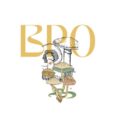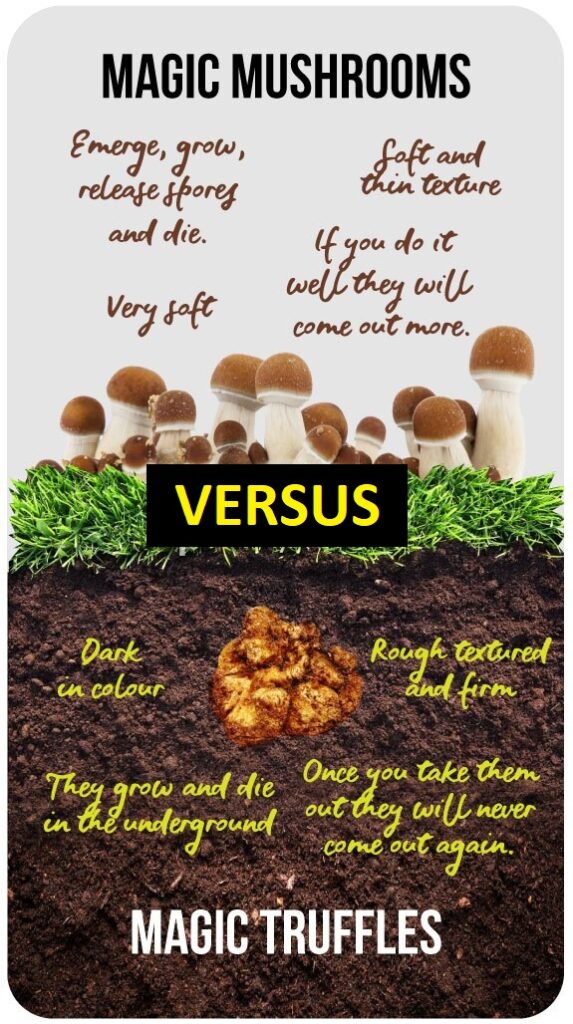Are you looking to unlock the potential of your mind and explore new perspectives? Look no further than the benefits of magic mushrooms. These fascinating fungi have been used for centuries by indigenous cultures for spiritual and medicinal purposes. And now, modern research is uncovering their incredible benefits for mental health issues such as depression, anxiety, and PTSD. But before diving in, it’s important to understand how they work on the brain and what risks may be involved. So let’s dive deeper into the world of magic mushrooms and discover all that they have to offer!
Outline:
First, let’s take a look at the outline for this article about magic mushrooms. We’ll be exploring what they are and how they affect the brain, as well as their potential health benefits and risks.
So what exactly are magic mushrooms? They’re a type of fungi that contain psilocybin, which is a hallucinogenic compound that can cause changes in perception, mood, and thought patterns when ingested.
But how do these compounds work on the brain? Research suggests that psilocybin binds to certain receptors in the brain, leading to increased communication between neurons and changing activity levels in various regions. This can result in altered states of consciousness and introspection.
Next up on our outline are the potential health benefits of magic mushrooms. Studies have shown promising results for treating depression and anxiety disorders, with some patients experiencing long-term relief after just one or two doses.
In addition to mental health benefits, magic mushrooms may also have physical healing properties such as reducing headaches or migraines.
Interestingly enough, there is also evidence suggesting that using magic mushrooms could help prevent substance misuse by decreasing cravings for drugs like nicotine or cocaine.
However, it’s important to understand the risks involved with using these substances. Potential side effects include nausea and vomiting during ingestion as well as negative psychological reactions such as anxiety or paranoia.
We’ll explore tips for safely using magic mushrooms including proper dosage guidelines and microdosing techniques for longer-term benefits without intense psychedelic experiences. So strap in – this journey into unlocking your mind is just getting started!
What Are Magic Mushrooms?
Magic mushrooms, also known as psilocybin mushrooms, are a type of fungus that contain psychoactive compounds. These compounds include psilocybin and psilocin, which are responsible for the hallucinations and altered states of consciousness associated with magic mushroom use.
The history of using magic mushrooms for their psychedelic effects dates back centuries in many cultures around the world. In modern times, they have gained popularity as a recreational drug due to their mind-altering effects.
However, there is growing interest in exploring the potential medicinal benefits of magic mushrooms. Research suggests that these fungi may hold promise in treating conditions such as depression, anxiety, headaches, substance misuse disorders, PTSD and addiction.
While the use of magic mushrooms remains illegal in most places around the world due to its classification as a Schedule I controlled substance under international law., some countries like Portugal have decriminalized its consumption.
There is still much research needed to fully understand how these unique fungi work on our brains but given recent studies into it’s possible therapeutic benefits , this could be just scratching the surface when it comes unlocking human potential through natural means.
How Do Magic Mushrooms Affect the Brain?
Magic mushrooms have been used for centuries as a tool for spiritual and medicinal purposes. The effects of magic mushrooms on the brain are linked to their active ingredient, psilocybin. When ingested, psilocybin is metabolized into psilocin which acts on serotonin receptors in the brain.
Research has shown that magic mushrooms can increase blood flow to certain areas of the brain, leading to changes in perception, mood and thought processes. This increased activity in the default mode network (DMN) may be responsible for feelings of ego dissolution and altered consciousness experienced during a trip.
Additionally, psilocybin has been found to increase neuroplasticity – the ability of neurons to form new connections with each other – potentially opening up new pathways for creative thinking and problem-solving.
However, it’s not all positive effects. Magic mushrooms can also lead to negative side effects such as paranoia or anxiety due to changes in brain chemistry. It’s important to understand how they work before deciding whether or not they’re right for you.
More research is needed into how magic mushrooms affect the brain but there is certainly potential for them being used therapeutically.
The Potential Health Benefits of Magic Mushrooms
Magic mushrooms have been used for centuries by indigenous cultures for medicinal and spiritual purposes. Recently, they have gained attention in Western medicine due to their potential health benefits. Studies have shown that the active ingredient in magic mushrooms, psilocybin, can provide relief from depression and anxiety.
Psilocybin has been found to increase the activity of serotonin receptors in the brain, which are responsible for regulating mood. This leads to feelings of euphoria and decreased anxiety levels. In fact, a recent study conducted at Johns Hopkins University showed that a single dose of psilocybin was able to reduce symptoms of depression and anxiety in cancer patients.
In addition to its effects on mental health, magic mushrooms may also be effective as a treatment for headaches. Research has suggested that psilocybin can reduce cluster headache attacks by up to 50%. Cluster headaches are often described as one of the most painful types of headaches.
Another potential benefit of magic mushrooms is their ability to prevent substance misuse. A study published in the Journal of Psychopharmacology found that people who had used psychedelics like psilocybin were less likely to abuse drugs or alcohol later on in life.
Additionally, research suggests that psilocybin could be an effective therapy for those suffering from post-traumatic stress disorder (PTSD). Psilocybin-assisted therapy has been shown to reduce symptoms such as flashbacks and nightmares among veterans struggling with PTSD.
Magic mushrooms may even hold promise as an aid for smoking cessation and addiction treatment. A study conducted at Johns Hopkins University showed promising results when using psilocybin-assisted psychotherapy as a tool for quitting smoking.
While these potential health benefits certainly show promise, it’s important to approach any use of magic mushrooms with caution due to possible risks involved with improper dosage or pre-existing psychiatric disorders. It’s always best practice seek guidance from trained professionals before exploring this avenue further.
Relief from Depression and Anxiety
Magic mushrooms have recently been found to have potential benefits for those suffering from depression and anxiety. Studies have shown that the active ingredient in magic mushrooms, psilocybin, can help reset the brain’s default mode network – a cluster of interconnected brain regions associated with self-reflection and rumination.
Research participants who were given psilocybin reported feeling more open-minded, less anxious and depressed, and had an overall improved sense of well-being. In one study, 80% of participants showed significant reductions in anxiety and depression symptoms after just one dose.
Furthermore, unlike traditional antidepressants which may take weeks or even months to show any effect on mood disorders, psilocybin has been shown to produce rapid improvements within hours or days after administration.
However, it is important to note that while these initial findings are promising, further research is needed before magic mushrooms can be safely recommended as a treatment option for depression and anxiety. Additionally, anyone considering using them should always do so under medical supervision due to potential risks involved.
Headache Treatment
Magic mushrooms are often associated with their mind-altering effects, but did you know that they may also have potential benefits for headache treatment? In fact, some individuals who suffer from chronic migraines and cluster headaches have reported significant relief after using magic mushrooms.
While there is limited research on the topic, some studies suggest that psilocybin, the active ingredient in magic mushrooms, can affect serotonin receptors in the brain. Serotonin plays a crucial role in pain regulation and may be involved in migraine pathophysiology.
Some users report taking just a small amount of psilocybin during an onset of a headache to experience complete relief within minutes. However, it’s important to note that magic mushrooms should not be used as a primary treatment option for headaches or any other medical conditions without consulting with a healthcare professional first.
As with all use of substances like magic mushrooms, it’s essential to approach their use with caution and respect. Always ensure proper dosage and preparation before consuming them for headache treatment purposes. Additionally, consult your doctor if you experience frequent headaches or migraines to receive appropriate diagnosis and guidance on effective treatments.
You might be interested in the following topics below;




